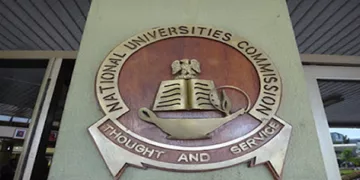President Bola Tinubu has directed security agencies to go after debtors and defaulters of the Anchor Borrowers Loan Programme (ABP) instituted by the Central Bank of Nigeria.
The presidency gave the directive after investigations revealed that about N577 billion out of the N1.103 793 587 359.70 given out as loans was yet to be refunded.
LEADERSHIP Weekend investigation showed that some of the defaulters of these loans are individuals, farmers associations and financial institutions and while some have made efforts to return the money borrowed some others have totally defaulted and laid claims to some stories on how the monies were lost to investments.
The directive of the president as our investigation shows gives the defaulters from now until September 18 to refund the outstanding debt of about N577 billion.
Investigations also showed that security agencies have written to the defaulters on the deadline to refund the monies and some of them have willingly payback while others are yet to refund.
Investigation also showed that some of the monies are not totally in the hands of the investors but in the hands of the banks which were supposed to disburse the money but failed to disburse all the funds given to them by the Central Bank of Nigeria.
When contacted the EFCC spokesman, Wilson Uwujaren, would not speak on the investigation.
Also, the spokesman of the DSS, Dr. Peter Afunanya, said it was not out of place for security agencies to be directed by the president to act on issue of national security and interest.
The spokesman of the Nigerian Police did also not speak on the issue as his phone was switched off.
Recall that recently, the International Monetary Fund (IMF) revealed that only 24 per cent of the amount disbursed had been repaid. But the CBN pushed back, saying about 52.4 per cent or N503 billion had been recovered from the 4.5 million beneficiaries of the programme.
The suspended governor of the Bank, Godwin Emefiele, had disclosed that N1.09 trillion had been disbursed. through the controversial programme.
The chief executive officer of Kereksuk Rice Farms, Rotimi Williams, had said though the programme had not been successful, a restructuring could increase its efficiency.
Williams hinted that he attempted to access the fund for his farm, but did not succeed even when his farm was considered one of the largest in the country, and perhaps the largest rice farm.
The president of the Yam Farmers and Marketers Association of Nigeria, Prof. Simon Irtwange, said though yam was mentioned among the agricultural commodities covered under the programme, efforts made by the association to access the loan did not yield results.
He said: “As an association, we followed the due process to ensure our members benefited from the programme. But we were rather harassed by the microfinance bank disbursing the loan.”
President of the All Farmers Association of Nigeria (AFAN), Kabir Ibrahim, had claimed he knew the programme would have problems when the CBN started dealing with individual farmers directly rather than through their associations.
He said: “Many of the farmers were reached directly, not through AFAN and so when they couldn’t pay, there was no way they could be reached. So far, the exposure of CBN is over one trillion and the repayment has been abysmal. For that, Nigeria has lost a lot of resources on the ABP.”
While acknowledging that Nigeria has made some gains through the ABP, Ibrahim added: “Nobody will deny the fact that there may be some rice in the country, they have even done some pyramids even though they were questionable. What we should do is institutionalise the ABP of the CBN in the Federal Ministry of Agriculture and Rural Development and they should reach the commodity associations through AFAN, which is the umbrella body.
“In AFAN, anybody who says he has a farm, we will know if it is true or not because we have leadership in every ward in this country. So that if you say you are cultivating rice, we go and check if rice can grow in that area. That is how to check the incidence of fake farmers,” he said.
The chief executive of the Centre for the Promotion of Private Enterprise (CPPE), Dr. Muda Yusuf, said there was a need for a proper review, a very comprehensive review of the ABP, especially from the point of the high default rate.
He said: “If you have a credit scheme with a high default rate, then something must be wrong with the framework. Again, stakeholders have complained that the loan is going into the wrong hands, there is a need to take a second look at the transparency of the process to ensure that the targeting is right so that it gets to the hands of the right people.”





